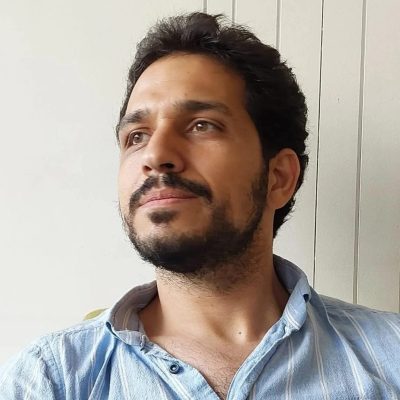
Lebanon’s cabinet is set to meet again on Thursday to address the contentious issue of Hezbollah’s weapons and whether the group should finally disarm or continue keeping its armed wing under the banner of “resistance to Israel.”
By Adnan Nasser
Following this week’s session, which sparked a fierce debate on the matter of Hezbollah’s role in defending Lebanon’s borders. Prime Minister Nawaf Salam’s government convened at the presidential palace and reached a historical decision: tasking the Lebanese army to limit arms under state control.
This decision, if implemented, could significantly alter the balance of power in Lebanon and potentially lead to a more secure and stable environment.
Hezbollah’s rebuttal: Lebanese government was committing a "grave sin" by ordering the army to establish a state monopoly on arms. Its recent statements, made under mounting pressure to relinquish its arsenal—which, by some estimates, may be larger than that of the national Lebanese army—demonstrate a clear intention to double down and defy demands for disarmament.
Hezbollah secretary general Naim Qassem recently declared in a televised speech that the party rejects any call to surrender its military capabilities, equating such a move with yielding to Israeli coercion. “Those who call for submitting arms are practically demanding submission to Israel… We will not submit to Israel.”
The 72-year-old leader further emphasised his organisation’s stance, stressing that, “those who call for disarmament—whether from the domestic, global, or Arab arena—serve the Israeli project.”
Naim Qassem succeeded the long-serving, internationally recognised leader, Hassan Nasrallah, after Israel assassinated Nasrallah on September 27 of last year.
Israeli Presence in Southern Lebanon
Easefire was declared in November 2024, Lebanon demonstrated complete restraint and upheld the terms of the agreement. However, since its initiation, Lebanese civilian casualties have continued to rise, and the residents of southern Lebanon have yet to see their properties rebuilt after the war.
Israel maintains drone surveillance across the country, with drones frequently heard over Beirut. Attacks on Beirut’s southern suburbs (Dahieh) have also continued, leaving more civilians homeless. While the strikes on Beirut have ceased for now, fear of renewed conflict still lingers among the capital’s residents.
On the ground, there are currently no significant signs of an immediate resurgence in violence between Israel and Hezbollah. However, this could change depending on the outcome of the upcoming cabinet meeting, potentially leading to increased regional instability.
Lebanese Representatives & International Observers
Parliamentary member Ibrahim Mneimneh expressed his hopes for the upcoming cabinet session: “I am optimistic that we will see a plan supported by all political parties regarding the monopoly of arms within the Lebanese state. It’s high time every Lebanese person came together to devise a strategy to bolster the Lebanese army’s defence capabilities. The key to protecting the country lies in national unity under the state.”
Though Lebanese lawmakers and officials seek to frame Tuesday’s meeting as a domestic political issue, the United States has made its position clear. If Lebanon wants further assistance for reconstruction and security, Beirut must resolve the question of Hezbollah’s impunity.
The United States, as a key player in the region, is pushing for Hezbollah's disarmament as a condition for its continued support for Lebanon's recovery and security.
Former American ambassador to Morocco, Edward Gabriel, shared his expectations for the cabinet session: “There is an expectation by the international community and many of Lebanon’s political elite that the government will make it officially clear that it will honor the terms of the ceasefire and other agreements to disarm Hezbollah, both north and south of the Litani, throughout the entire country.
There is also an expectation that a timeline will be set for total disarmament. This is extremely important at this time, given that envoy Tom Barrack’s last visit did not achieve the anticipated progress.
Regarding the second question, Hezbollah currently has no credibility with US policymakers. However, for the agreement to succeed, all three parties—Lebanon, the United States, and Israel—must fulfil their obligations. The United States must strengthen enforcement mechanisms for the agreement, provide tangible support to the LAF, and commit to leading Lebanon’s reconstruction once disarmament is achieved.
Israel, in turn, must agree to cease hostilities and fully withdraw from Lebanon as part of a step-by-step approach. Lebanon must commit to complete disarmament and enact critical reforms to move the country forward.”
Consequences for failing to disarm Hezbollah
Lebanon’s justice minister warned last Sunday that Hezbollah would be choosing “suicide” if it refuses to disarm, emphasising that the group would not be permitted to drag the country into further catastrophe. The minister's stark warning underscores the profound implications of Hezbollah's continued possession of weapons, including the potential for further conflict and instability in Lebanon.
His remarks came three days ahead of the cabinet session that will focus on state sovereignty and the exclusive possession of arms by official security forces across Lebanese territory.
Suppose Hezbollah remains unwilling to compromise and align with Lebanon’s new direction. In that case, the group risks further isolation and growing resentment—not only from the broader Lebanese population but also from the Shia community, which suffered most in last year’s war.
The goal of disarming Hezbollah by the year’s end is a lofty one. However, when security guarantees to Lebanon are met and the United States assures Lebanon that all Israeli attacks on the country’s sovereignty stop… it will be half the battle won.
Everyone has their role to play in winning the peace in Lebanon.







Very factual analysis as usual!
Fake News
just meant to make the mess continue
downward.
Declare demurrage on the PAPER US Dollar,
and build a Trump Freedom City
on the border.
💜 Angel NicGillicuddy